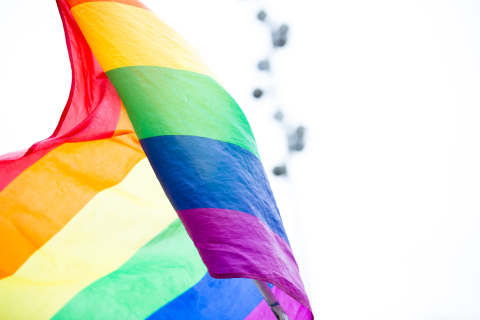Galop, the UK’s LGBT+ anti-abuse charity, has released a new report about LGBT+ people’s experiences of being subjected to abuse, as well as their access to sources of support. The report looks at access to and experiences of support across the UK and compares it to the support available in six major cities (London, Manchester, Brighton, Birmingham, Edinburgh, and Glasgow) where LGBT+ people have often moved to seek safety and community.
What is the report about?
The report, named ‘An Isolated Place’, draws on survey results from 2,042 LGBT+ people across the UK. It specifically examines abuse inflicted by family members or current/ex-partners and provides insights into the experiences and support requirements of LGBT+ survivors within these family or intimate relationships.
What are the key findings?
Most LGBT+ survivors dealt with their experiences alone, and many did not know support was available for them.
-
Around 6 in 10 (61%) LGBT+ survivors did not seek support from services following a particular instance of domestic abuse.
-
Close to 4 in 10 (38%) LGBT+ survivors went without support from friends, family or other informal supports following an instance of domestic abuse.
-
Of those LGBT+ survivors who did not seek professional support following an incidence of domestic abuse, 41% did not seek help because they were unaware any support was available.
-
Compared with those in the six major cities (37%), LGBT+ survivors living in a village (54%) or any other city (50%) at the time of the abuse were more likely to report they did not know any support was available.
-
These results suggest, overall, that trans, non-binary and gender-diverse+ survivors needed help from services after an incident of domestic abuse, but more than half (53%) thought there was no support available for them.
LGBT+ survivors face difficulties in getting support when and where they need it.
-
The vast majority (81%) of LGBT+ survivors of domestic abuse experienced this abuse in places outside the six major cities — that is, in places in the UK where there are few or no specialist LGBT+ services.
-
Of the LGBT+ survivors who sought support after an experience of domestic abuse, around 1 in 7 (15%) did not receive any professional support despite trying to access it.
-
Most (73%) of the LGBT+ support-seekers had to rely on general, non-LGBT+, support services.
-
Of those who sought support, only 3% received advocacy services after a particular experience of domestic abuse. However, nearly 9 times as many LGBT+ survivors reported wanting advocacy after the abuse.
-
Of those who sought support, only 4% received practical assistance after a particular experience of domestic abuse. However, around 6 times as many LGBT+ survivors reported wanting practical assistance after the abuse.
-
Trans, non-binary and gender-diverse+, and pan/ queer survivors reported high levels of concern about being mistreated by services or that services may not understand their identities.
What does the report recommend?
The report highlights the patchwork of services across the UK and how challenging it can be for LGBT+ survivors to access support. As a result, Galop recommends:
-
Specialist LGBT+ support services should be extended everywhere across the country.
-
A national funding model for by-and-for abuse support services.
-
Dedicated ongoing national funding for LGBT+ survivors for a range of practical support which is not contingent on where they live.
-
The removal of practical barriers to support, such as waiting lists and limited service capacity, and the development and sharing of awareness campaigns for specialist LGBT+ services.
How can employers support LGBT+ people experiencing abuse?
Given the limited support for LGBT+ survivors highlighted in this report, the role of employers in supporting LBBT+ employees who are affected is vital. This report specifically flags the lack of support available outside the six major cities, which is important for employers whose people live in other places across the UK.
Ensure that your work culture is inclusive and that you offer practical support. This could include being aware of and ready to signpost to those specialist services that are available (Galop’s free helpline is available nationally: 0800 999 5428), organising training and awareness-raising on how domestic abuse can affect LGBT+ people, and offering counselling and emergency accommodation where employees decide to flee from an abuser.
During Pride Month, please spread the word about the experiences of domestic abuse by LGBT+ people. You can share this news story and resources from Galop with employees alongside other awareness-raising campaigns you are running this month. You never know when someone affected might draw on those resources to seek help.
You can also support Galop’s awareness-raising campaigns. Share Galop’s “I’ve #GotYourBack campaign” this month which is all about showing solidarity with LGBT+ people through meaningful action.
Finally, save the date for our EIDA Insight Hour with Galop on Tuesday 19 September 2023 from 1-2pm to learn about the additional barriers faced by LGBT+ survivors of domestic abuse. Ensure you are an EIDA member to receive our Tuesday Trio newsletters and be the first to hear about our upcoming events.
Read Galop’s full report ‘An Isolated Place’
Join EIDA for free and spread the word by encouraging other businesses to join today.

